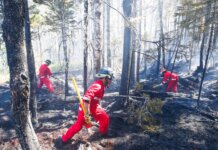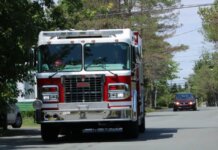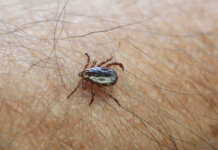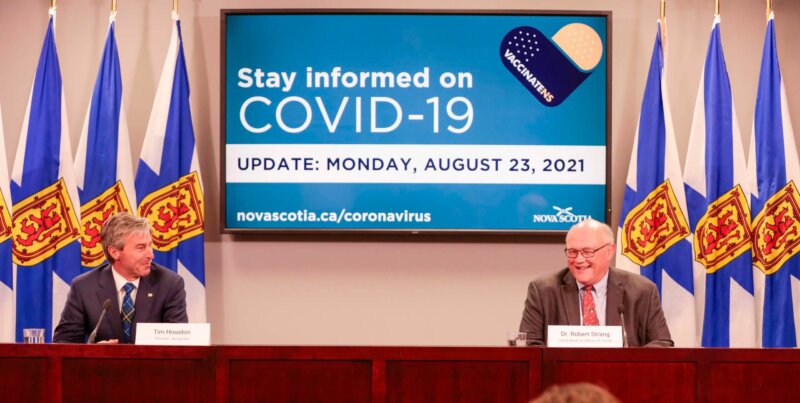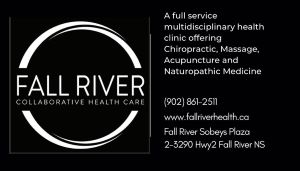MAIN PHOTO: Premier-designate Tim Houston and Dr. Robert Strang. (Communications N.S. Photo)
HALIFAX: Nova Scotia is targeting Sept. 15 as the start of the next phase of its reopening plan. Phase 5 will see border measures continue while most other public health restrictions are lifted.
To start Phase 5, epidemiology should be good and 75 per cent of the population should be fully vaccinated with two doses of COVID-19 vaccine. Currently, COVID-19 activity remains low across the province and about 70 per cent of Nova Scotians have had two doses of vaccine. Anyone who has not been vaccinated or has not moved up their second-dose appointment is encouraged to do so.
“My main priority is to work with public health to continue to protect Nova Scotians in what we all hope are the final months of this pandemic,” said premier-designate Tim Houston. “For now, living with COVID-19 means leaving border policies in place through the fall while lifting most other restrictions.
“The requirement to self-isolate after travel has been the main line of defence to protect Nova Scotians from COVID-19 and that won’t change for travellers who are not fully vaccinated.”
International travellers will continue to follow federal requirements. Nova Scotia’s current border policy of isolation based on vaccination status and testing will remain in place for travellers coming from provinces and territories outside of Atlantic Canada. As of 8 a.m. on Aug. 25, the border policy will also apply to people coming from New Brunswick due to a rise of COVID-19 activity in that province.
Workers and students who frequently cross the border with New Brunswick and people who need to make quick trips will not have to self-isolate as long as they follow the Nova Scotia-New Brunswick travel protocol. People moving to Nova Scotia or coming for vacation or an extended stay will have to complete the Nova Scotia Safe Check-in and self-isolate based on vaccination status and testing.
As of Sept. 15, the only restrictions that will remain in place for the general population within Nova Scotia are those related to management of COVID-19 cases. For example, anyone with symptoms must still get tested, isolate while they wait for results and continue to isolate if they test positive.
“Removing restrictions and mandatory measures does not mean COVID-19 is gone. It means that our vaccination rates are high enough that we can start living safely with the virus without the restrictions and measures that were needed in previous waves,” said Dr. Robert Strang, Nova Scotia’s chief medical officer of health. “Thanks to vaccination, there is much less risk of wide spread of the virus and severe illness.
“Even though we expect to see cases and small outbreaks in people who aren’t vaccinated, our overall vaccination coverage should limit the impact on our people, our healthcare system and our economy.”
Precautions include staying home when sick, washing hands regularly, coughing and sneezing into your elbow and regularly cleaning high-touch surfaces. While masks will no longer be mandatory in most places, it will be strongly recommended that everyone wear them in indoor public places when they’re around other people, especially during the fall and winter which is typically cold and flu season.
Masks will still be required for staff in long-term care facilities. Healthcare facilities will continue to set their own policies for masks and visitation. Businesses and other organizations are also free to set their own mask policies. Masks will be required in schools as the school year begins but will not be required once Phase 5 starts.
Measures like plexiglass barriers and increased cleaning that employers have put in place to prevent COVID-19 should continue. They are good occupational health and safety practices to mitigate the risk of many respiratory and other illnesses. Employers should also continue to support employees to stay home when they are sick.
With a highly vaccinated population, regular asymptomatic testing will no longer be recommended. It will still be available for incoming travellers who require it, as well as close contacts of confirmed cases and anyone else who is directed by public health to get tested.
More than 200 employers offering rapid testing programs with approval from the Department of Health and Wellness can continue as part of COVID-19 surveillance and general workplace safety.
Other employers can start programs in their workplaces. More information is available at https://novascotia.ca/coronavirus/working-during-covid-19/#workplace-screening-program

